Fleurs du Mal Magazine


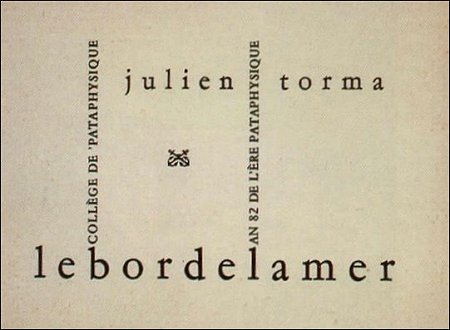
J u l i e n T o r m a
(1902-1933)
Le contraire du problème
est le poème
Hommage
à Littré
tel un sexe en érection
dans une bouteille
tel un voyeur faisant
des projets d’avenir
telle une rose noire pelotée
par un fou
tel un dentier d’or
éclatant de rire sur une table
de nuit
l’ A M O U R .
[…]
Casquette sur l’oreille le démon siffle
un diabolo-menthe sur le zinc
pendant que
comme une Image
d’Epinal
sage
le Souverain Poncif pelote
rêveusement ses grosses couilles d
e Tolède.
Le Hasard? ses créations ne sont pas plus mal réussies que celles de l’Autre. Ses desseins sont tout aussi imprévisibles, sa puissance infinie. Il lui ressemble comme un frère. Comme lui il se laisse aller aux improvisations. Son sublime également est un peu usé: il ne faut pas prendre au sérieux ce qui arrive. Comme Dieu, entremetteur et assassin: et de cuisse légère, offert au premier venu.
Pour l’optimiste, tout est bien: font partie de l’harmonie tous ces désordres, stupidités et insignifiances. Quel pessimiste! Pour le pessimiste tout devrait être beaucoup mieux: il semble croire qu’on puisse concevoir l’univers autrement qu’absurde et l’homme autrement que médiocre. Quel optimiste!
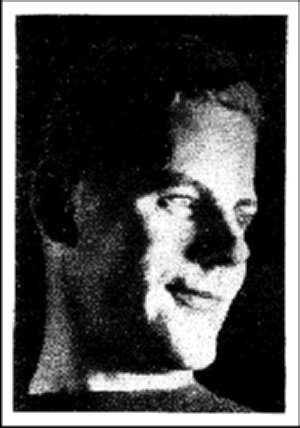
KEMP=MAG POETRY MAGAZINE
More in: Torma, Julien
.jpg)
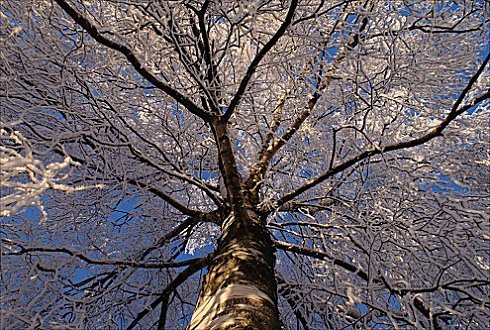
E m i l y D i c k i n s o n
(1830 – 1886)
A Light exists in Spring
A Light exists in Spring
Not present on the Year
At any other period —
When March is scarcely here
A Color stands abroad
On Solitary Fields
That Science cannot overtake
But Human Nature feels.
It waits upon the Lawn,
It shows the furthest Tree
Upon the furthest Slope you know
It almost speaks to you.
Then as Horizons step
Or Noons report away
Without the Formula of sound
It passes and we stay —
A quality of loss
Affecting our Content
As Trade had suddenly encroached
Upon a Sacrament.
Natuurdagboek Hans Hermans – April 2009
Poem: Emily Dickinson – Photos: Hans Hermans


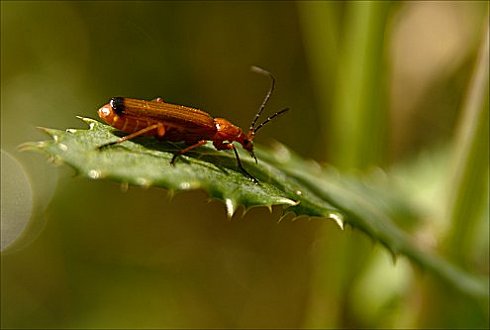
© photos hans hermans
fleursdumal.nl – magazine for art & literature
More in: 4SEASONS#Spring, Archive C-D, Archive G-H, Dickinson, Emily, Hans Hermans Photos
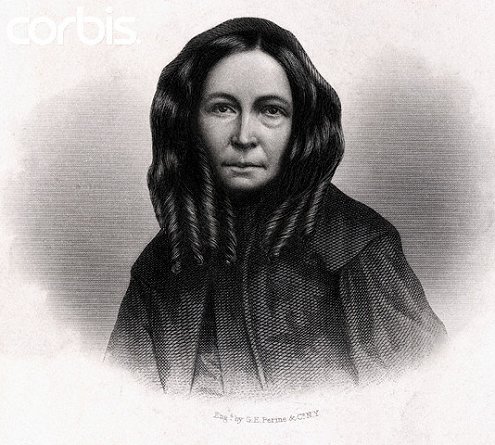
Elizabeth Barrett Browning
(1806-1861)
The Runaway Slave at Pilgrim’s Point
I
I stand on the mark beside the shore
Of the first white pilgrim’s bended knee,
Where exile turned to ancestor,
And God was thanked for liberty.
I have run through the night, my skin is as dark,
I bend my knee down on this mark…
I look on the sky and the sea.
II
O pilgrim-souls, I speak to you!
I see you come out proud and slow
From the land of the spirits pale as dew. . .
And round me and round me ye go!
O pilgrims, I have gasped and run
All night long from the whips of one
Who in your names works sin and woe.
III
And thus I thought that I would come
And kneel here where I knelt before,
And feel your souls around me hum
In undertone to the ocean’s roar;
And lift my black face, my black hand,
Here, in your names, to curse this land
Ye blessed in freedom’s evermore.
IV
I am black, I am black;
And yet God made me, they say.
But if He did so, smiling back
He must have cast His work away
Under the feet of His white creatures,
With a look of scorn,–that the dusky features
Might be trodden again to clay.
V
And yet He has made dark things
To be glad and merry as light.
There’s a little dark bird sits and sings;
There’s a dark stream ripples out of sight;
And the dark frogs chant in the safe morass,
And the sweetest stars are made to pass
O’er the face of the darkest night.
VI
But we who are dark, we are dark!
Ah, God, we have no stars!
About our souls in care and cark
Our blackness shuts like prison bars:
The poor souls crouch so far behind,
That never a comfort can they find
By reaching through the prison-bars.
VII
Indeed, we live beneath the sky,…
That great smooth Hand of God, stretched out
On all His children fatherly,
To bless them from the fear and doubt,
Which would be, if, from this low place,
All opened straight up to His face
Into the grand eternity.
VIII
And still God’s sunshine and His frost,
They make us hot, they make us cold,
As if we were not black and lost:
And the beasts and birds, in wood and fold,
Do fear and take us for very men!
Could the weep-poor-will or the cat of the glen
Look into my eyes and be bold?
IX
I am black, I am black!–
But, once, I laughed in girlish glee;
For one of my colour stood in the track
Where the drivers drove, and looked at me–
And tender and full was the look he gave:
Could a slave look so at another slave?–
I look at the sky and the sea.
X
And from that hour our spirits grew
As free as if unsold, unbought:
Oh, strong enough, since we were two
To conquer the world, we thought!
The drivers drove us day by day;
We did not mind, we went one way,
And no better a liberty sought.
XI
In the sunny ground between the canes,
He said "I love you" as he passed:
When the shingle-roof rang sharp with the rains,
I heard how he vowed it fast:
While others shook, he smiled in the hut
As he carved me a bowl of the cocoa-nut,
Through the roar of the hurricanes.
XII
I sang his name instead of a song;
Over and over I sang his name–
Upward and downward I drew it along
My various notes; the same, the same!
I sang it low, that the slave-girls near
Might never guess from aught they could hear,
It was only a name.
XIII
I look on the sky and the sea–
We were two to love, and two to pray,–
Yes, two, O God, who cried to Thee,
Though nothing didst Thou say.
Coldly Thou sat’st behind the sun!
And now I cry who am but one,
How wilt Thou speak to-day?–
XIV
We were black, we were black!
We had no claim to love and bliss:
What marvel, if each turned to lack?
They wrung my cold hands out of his,–
They dragged him… where ?… I crawled to touch
His blood’s mark in the dust!… not much,
Ye pilgrim-souls,… though plain as this!
XV
Wrong, followed by a deeper wrong!
Mere grief’s too good for such as I.
So the white men brought the shame ere long
To strangle the sob of my agony.
They would not leave me for my dull
Wet eyes!–it was too merciful
To let me weep pure tears and die.
XVI
I am black, I am black!–
I wore a child upon my breast
An amulet that hung too slack,
And, in my unrest, could not rest:
Thus we went moaning, child and mother,
One to another, one to another,
Until all ended for the best:
XVII
For hark ! I will tell you low… Iow…
I am black, you see,–
And the babe who lay on my bosom so,
Was far too white… too white for me;
As white as the ladies who scorned to pray
Beside me at church but yesterday;
Though my tears had washed a place for my knee.
XVIII
My own, own child! I could not bear
To look in his face, it was so white.
I covered him up with a kerchief there;
I covered his face in close and tight:
And he moaned and struggled, as well might be,
For the white child wanted his liberty–
Ha, ha! he wanted his master right.
XIX
He moaned and beat with his head and feet,
His little feet that never grew–
He struck them out, as it was meet,
Against my heart to break it through.
I might have sung and made him mild–
But I dared not sing to the white-faced child
The only song I knew.
XX
I pulled the kerchief very close:
He could not see the sun, I swear,
More, then, alive, than now he does
From between the roots of the mango… where
… I know where. Close! a child and mother
Do wrong to look at one another,
When one is black and one is fair.
XXI
Why, in that single glance I had
Of my child’s face,… I tell you all,
I saw a look that made me mad…
The master’s look, that used to fall
On my soul like his lash… or worse!
And so, to save it from my curse,
I twisted it round in my shawl.
XXII
And he moaned and trembled from foot to head,
He shivered from head to foot;
Till, after a time, he lay instead
Too suddenly still and mute.
I felt, beside, a stiffening cold,…
I dared to lift up just a fold…
As in lifting a leaf of the mango-fruit.
XXIII
But my fruit… ha, ha!–there, had been
(I laugh to think on’t at this hour!…)
Your fine white angels, who have seen
Nearest the secret of God’s power,…
And plucked my fruit to make them wine,
And sucked the soul of that child of mine,
As the humming-bird sucks the soul of the flower.
XXIV
Ha, ha, for the trick of the angels white!
They freed the white child’s spirit so.
I said not a word, but, day and night,
I carried the body to and fro;
And it lay on my heart like a stone… as chill.
–The sun may shine out as much as he will:
I am cold, though it happened a month ago.
XXV
From the white man’s house, and the black man’s hut,
I carried the little body on,
The forest’s arms did round us shut,
And silence through the trees did run:
They asked no question as I went,–
They stood too high for astonishment,–
They could see God sit on His throne.
XXVI
My little body, kerchiefed fast,
I bore it on through the forest… on:
And when I felt it was tired at last,
I scooped a hole beneath the moon.
Through the forest-tops the angels far,
With a white sharp finger from every star,
Did point and mock at what was done.
XXVII
Yet when it was all done aright,…
Earth, ‘twixt me and my baby, strewed,
All, changed to black earth,… nothing white,…
A dark child in the dark,–ensued
Some comfort, and my heart grew young:
I sate down smiling there and sung
The song I learnt in my maidenhood.
XXVIII
And thus we two were reconciled,
The white child and black mother, thus:
For, as I sang it, soft and wild
The same song, more melodious,
Rose from the grave whereon I sate!
It was the dead child singing that,
To join the souls of both of us.
XXIX
I look on the sea and the sky!
Where the pilgrims’ ships first anchored lay,
The free sun rideth gloriously;
But the pilgrim-ghosts have slid away
Through the earliest streaks of the morn.
My face is black, but it glares with a scorn
Which they dare not meet by day.
XXX
Ah!–in their ‘stead, their hunter sons!
Ah, ah! they are on me–they hunt in a ring–
Keep off! I brave you all at once–
I throw off your eyes like snakes that sting!
You have killed the black eagle at nest, I think:
Did you never stand still in your triumph, and shrink
From the stroke of her wounded wing?
XXXI
(Man, drop that stone you dared to lift!–)
I wish you, who stand there five a-breast,
Each, for his own wife’s joy and gift,
A little corpse as safely at rest
As mine in the mangos!–Yes, but she
May keep live babies on her knee,
And sing the song she liketh best.
XXXll
I am not mad: I am black.
I see you staring in my face–
I know you, staring, shrinking back–
Ye are born of the Washington-race:
And this land is the free America:
And this mark on my wrist… (I prove what I say)
Ropes tied me up here to the flogging-place.
XXXIII
You think I shrieked then? Not a sound!
I hung, as a gourd hangs in the sun.
I only cursed them all around,
As softly as I might have done
My very own child!–From these sands
Up to the mountains, lift your hands,
O slaves, and end what I begun!
XXXIV
Whips, curses; these must answer those!
For in this UNION, you have set
Two kinds of men in adverse rows,
Each loathing each: and all forget
The seven wounds in Christ’s body fair;
While HE sees gaping everywhere
Our countless wounds that pay no debt.
XXXV
Our wounds are different. Your white men
Are, after all, not gods indeed,
Nor able to make Christs again
Do good with bleeding. We who bleed…
(Stand off!) we help not in our loss!
We are too heavy for our cross,
And fall and crush you and your seed.
XXXVI
I fall, I swoon! I look at the sky:
The clouds are breaking on my brain;
I am floated along, as if I should die
Of liberty’s exquisite pain–
In the name of the white child, waiting for me
In the death-dark where we may kiss and agree,
White men, I leave you all curse-free
In my broken heart’s disdain!
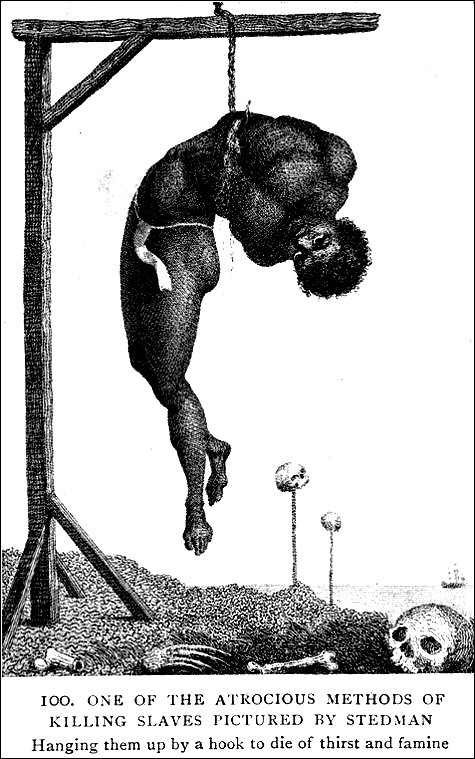
Elizabeth Barrett Browning: The Runaway Slave at Pilgrim’s Point
kemp=mag poetry magazine – magazine for art & literature
More in: Barrett Browning, Elizabeth
.jpg)

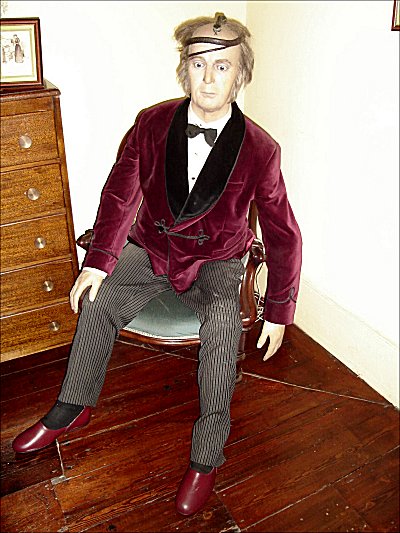
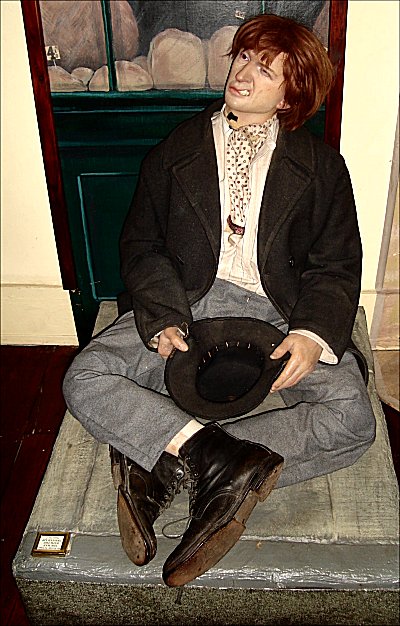
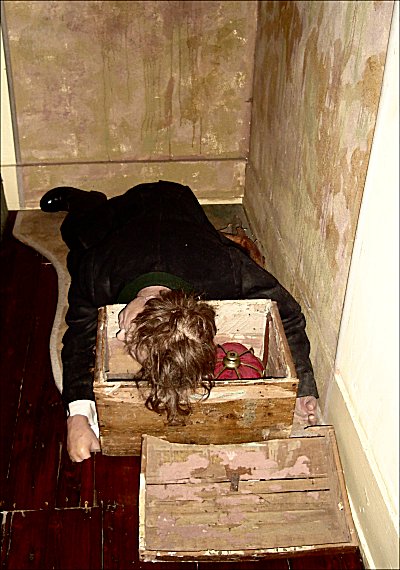
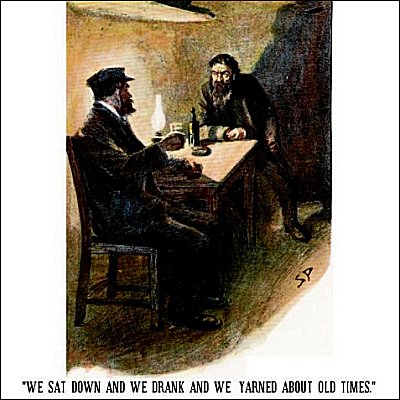

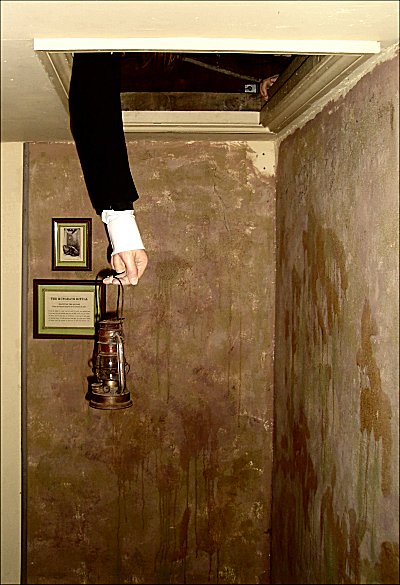
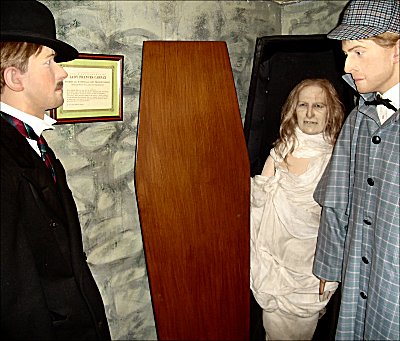
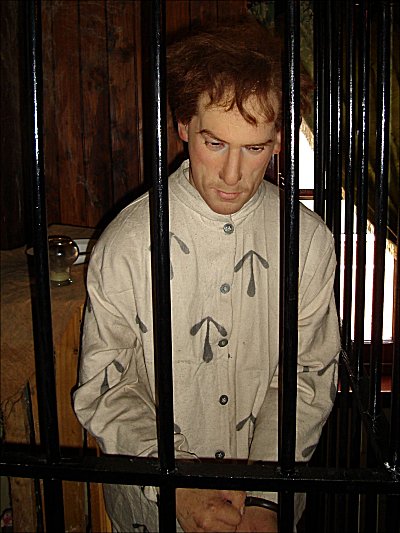
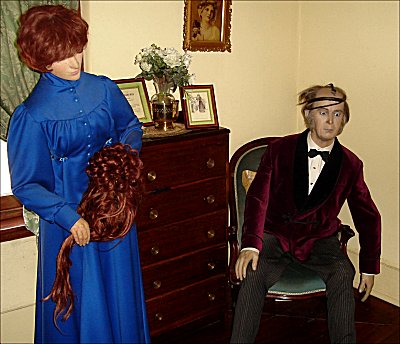
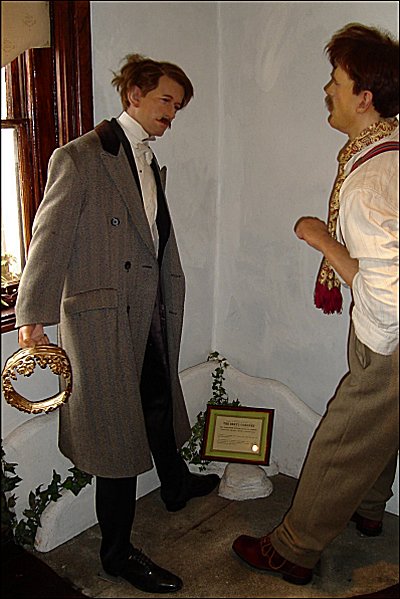
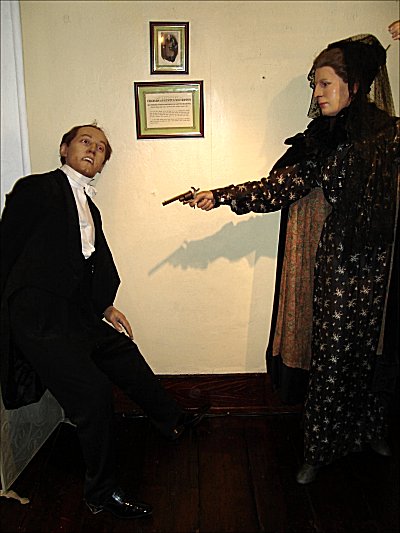
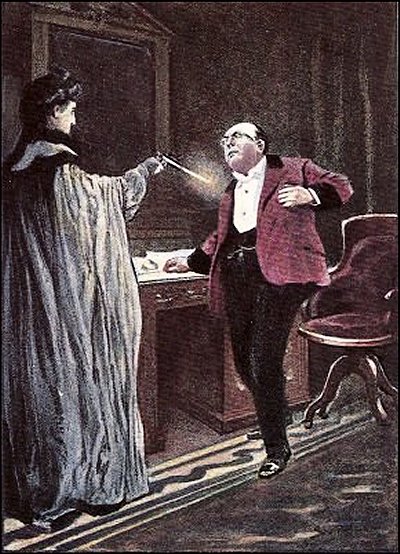
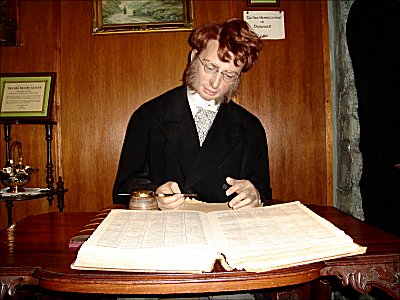

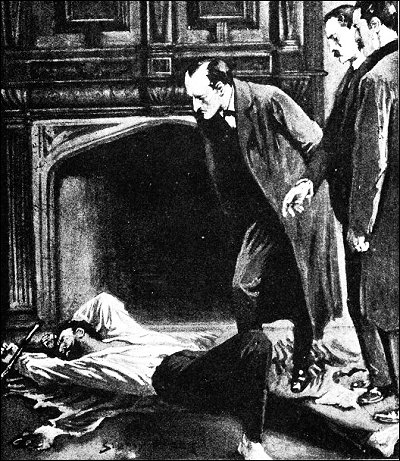
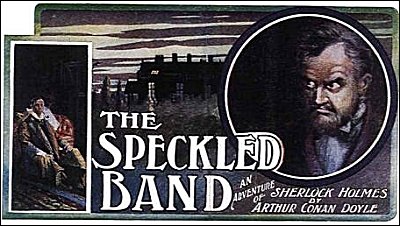
.jpg)
Museum of Literary Treasures
SHERLOCK HOLMES part V
The Sherlock Holmes Museum
Bakerstreet – LONDON
.jpg)
photos: jefvankempen
Illustrations: Sidney Paget
FLEURSDUMAL.NL MAGAZINE
More in: Arthur Conan Doyle, Museum of Literary Treasures, Sherlock Holmes Theatre
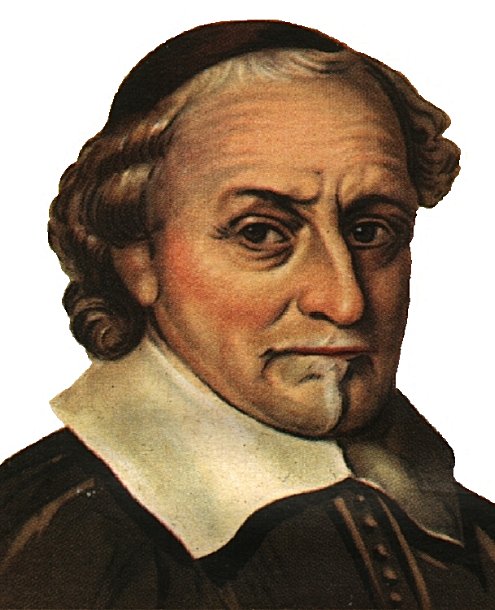
J o o s t v a n d e n V o n d e l
(1587 – 1679)
Domine, non est exaltatum
Myn hart is niet vermeeten
Van hoovaerdy bezeten.
Geen trotsheyt, noo gestuit,
Ziet my ten oogen uit.
Mijn wandel was, als dwazen,
Noit trots en opgeblazen,
Noch ’k roemde, al t’onbedocht,
Het geen ick niet vermoght.
Heb ickme uit trotsheit, sedert
Mijn boete, niet vernedert,
En, als een kint gespeent
Van ’s moeders borst, verkleent;
Zoo blijf mijn ziel, bezweecken
In druck, van u versteecken.
Dat Jakobs vroom geslacht
Godts hulp en troost verwacht’,
Die, nu en t’allen tijden,
Zijn stammen zal verblijden.
(Harpzangen 1656 – psalm 130)
kempis poetry magazine
More in: Archive U-V, Vondel, Joost van den
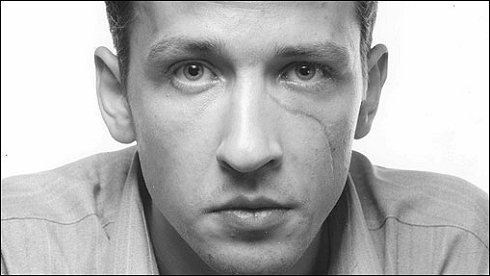
VPRO – TELEVISIE – NED. 2
Vrijdag 1 mei 2009 – 22.50-23.55
het uur van de wolf
B O R I S R Y Z H Y
Een film over poëzie, de Russische maffia, zelfmoord, liefde en de tragiek van de Perestrojka jaren. Een portret van een jonge dichter van de 21ste eeuw voor wie het leven in de ijzige industriestad Jekaterinburg ondraaglijk werd.
Filmdocumentaire over poëzie, de Russische maffia, zelfmoord, liefde en de tragiek van de Perestrojka-jaren. Een portret van een jonge dichter van de 21ste eeuw voor wie het leven in de ijzige industriestad Jekaterinburg ondraaglijk werd. ‘Al mijn gedichten gaan over liefde en dood, er zijn geen andere thema’s’, schreef Boris Ryzhy, de piepjonge Russische deelnemer aan Poetry International Rotterdam van 2000. ‘Maar het is een dom cliché dat een dichter een persoonlijke tragedie moet hebben. Ik ben zielsgelukkig met mijn jeugdliefde Irina en mijn zoon.’ Een jaar later zal deze charmante en bewonderde dichter-hooligan zich ophangen in zijn kamer, de wereld in verbijstering achterlatend. Hij werd 26 jaar. ‘Hij was als een komeet die aan de hemel oplichtte om vervolgens weer uit te doven’, zo schreef de Russische pers over hem. Zeven jaar na zijn dood reisde Aliona van der Horst samen met Maasja Ooms (camera) af naar de ijzige industriestad Jekaterinburg, op de grens van Siberië, om de sfeer van zijn gedichten te vangen en het raadsel van zijn dood te ontsluieren. Een film vol intense blikken, industriële sferen en tragikomische ontmoetingen met buurtbewoners van de Staalschrootwijk, de ruige bandietenwijk waar Boris opgroeide en die hij de goudmijn voor zijn poëzie noemde. Een lelijke wereld die door zijn gedichten wonderschoon wordt.
Regie Aliona van der Horst
Camera Maasja Ooms
Eindredactie Saskia van Schaik
Producent Zeppers Film and TV
.jpg)
![]()
fleursdumal.nl magazine
More in: Ryzhy, Boris
.jpg)

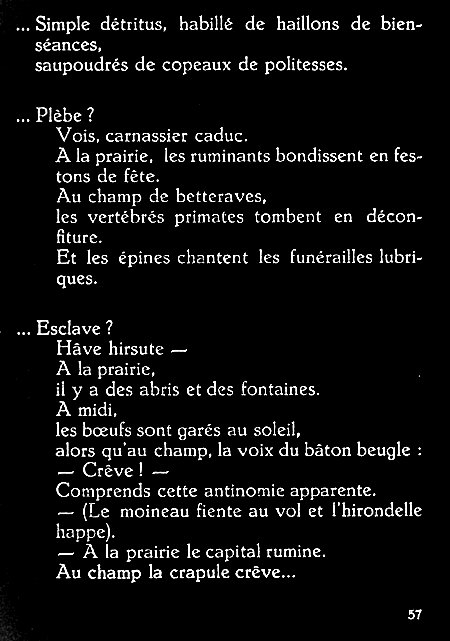
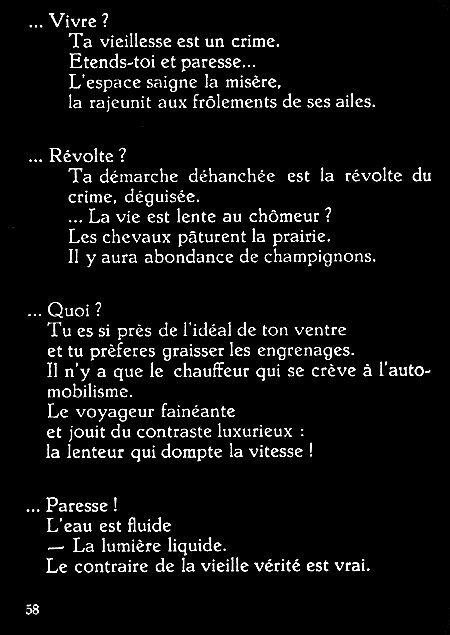
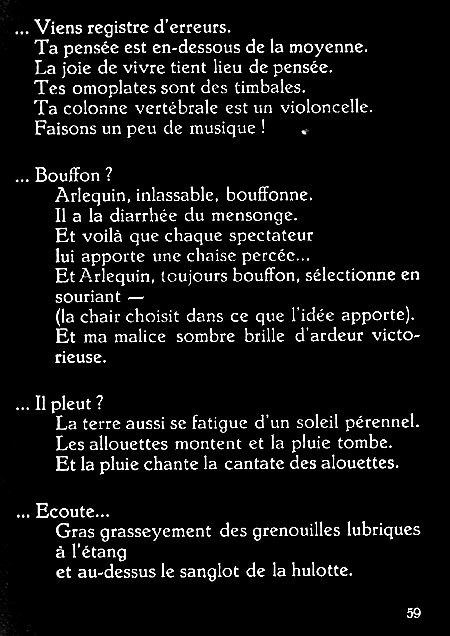
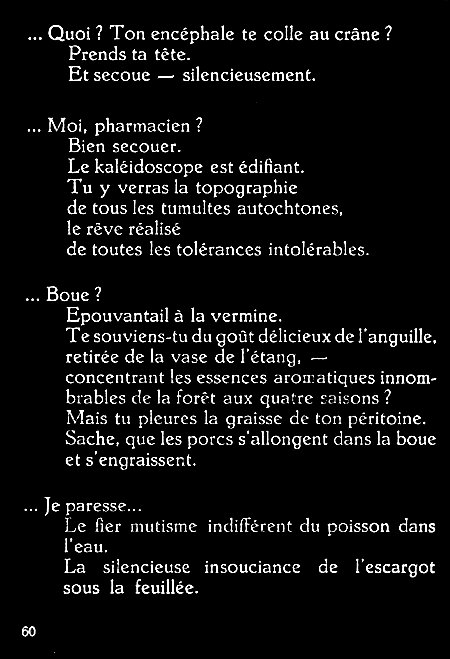

Clément Pansaers
(1885-1922)
L’APOLOGIE DE LA PARESSE 1917
Chapitre IX
![]()
kemp=mag poetry magazine – magazine for art & literature
More in: Pansaers, Clément
.jpg)
Monica Richter: Die Tür
![]()
.jpg)
.jpg)
.jpg)
.jpg)
.jpg)
.jpg)
.jpg)
.jpg)
.jpg)
.jpg)
.jpg)
.jpg)
Monica Richter : Die Tür
Die Tür nach Beuys
Kunstakademie Düsseldorf, 2009
![]()
.jpg)
KEMP=MAG poetry magazine
magazine for art & literature
© monica richter
More in: Monica Richter, Richter, Monica
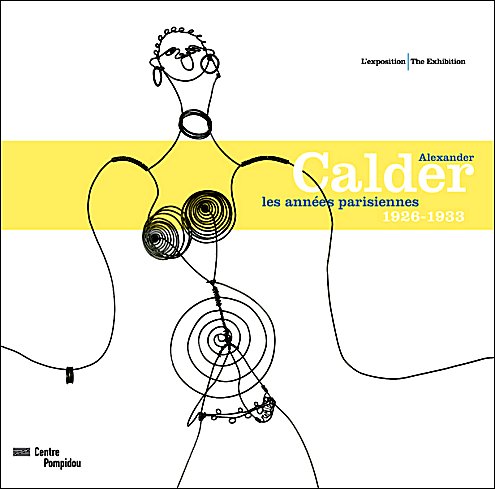
A L E X A N D E R C A L D E R
LES ANNÉES PARISIENNES, 1926-1933
18 March – 20 July 2009
Centre Pompidou Paris
An uncommonly lively and engaging character, Calder made his art into a continuous party, a party attended by his many friends, among them Joan Miró, Jean Cocteau, Man Ray, Fernand Léger and Piet Mondrian. Trained as an engineer, he was the inventor one of the most innovative and audacious forms of twentieth-century sculpture – the mobile, given its name by Marcel Duchamp. “Calder, les années parisiennes, 1926-1933” looks Calder’s Paris years, when he discovered his personal artistic vocabulary.
When he arrived in Paris in 1926, aged 27, Alexander Calder was a painter and illustrator. When he returned to the United States in 1933, he was the celebrated exponent of “drawing in space” and one of the greatest sculptors of the twentieth century.
The arrival in Paris of Calder’s Circus, the first time it has left New York since the artist’s death, is an event in itself, and this exceptional piece stands at the heart of the exhibition.
A ‘transatlantic’ artist, who after 1953 divided his time between the United States, the land of his birth, and his adopted country, France, Alexander Calder (1898-1976) is well known here for the large mobiles and stabiles of painted metal to be seen in French cities (La Spirale, at Unesco, Paris,1958) and sculpture parks (Reims Croix du Sud at Villeneuve-d’Ascq, 1969). Combining lightness and monumentality, playfulness and abstraction, these giant totems have become, for the general public, emblematic symbols of modern art.
As well as presenting outstanding pieces, the exhibition offers an opportunity to witness the original state of works conceived in terms of motion and equilibrium but now condemned to immobility by the exactions of time or by the death of their creator and animator, these being here accompanied by films such as Jean Painlevé’s and photographs such as Brassaï’s, in which they are shown being operated by Calder himself.
Little animals of bent metal, acute magazine illustrations, toys sparkling with colour and ingenuity: the young Calder’s earliest works offer a key to his art, the art of an inspired DIYer, of a magician who took base materials and primitive mechanisms and transformed them into true sculpture. These assemblies of recycled materials and objects, held together by wire, provided the models for his first masterpiece, the Circus, produced in Paris between 1926 and 1931.

fleursdumal.nl magazine for art & literature
More in: Exhibition Archive
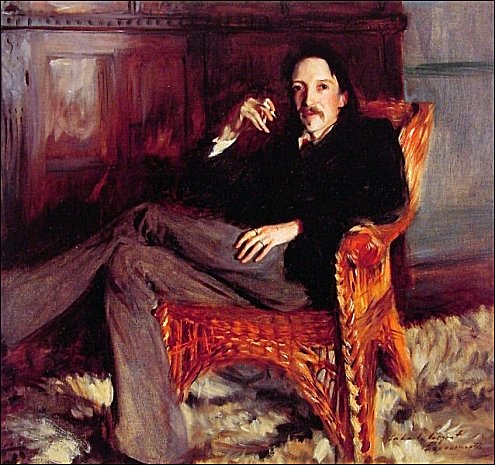
R o b e r t L o u i s S t e v e n s o n
(1850-1894)
Looking-Glass River
Smooth it glides upon its travel,
Here a wimple, there a gleam–
O the clean gravel!
O the smooth stream!
Sailing blossoms, silver fishes,
Pave pools as clear as air–
How a child wishes
To live down there!
We can see our colored faces
Floating on the shaken pool
Down in cool places,
Dim and very cool;
Till a wind or water wrinkle,
Dipping marten, plumping trout,
Spreads in a twinkle
And blots all out.
See the rings pursue each other;
All below grows black as night,
Just as if mother
Had blown out the light!
Patience, children, just a minute–
See the spreading circles die;
The stream and all in it
Will clear by-and-by.
Paintings: John Singer Sargent (1856-1925)

KEMP=MAG POETRY MAGAZINE
More in: Stevenson, Robert Louis
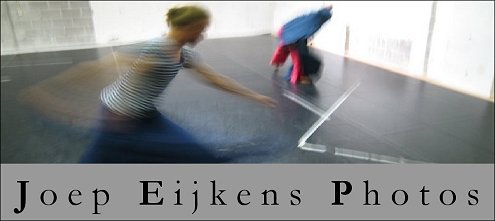
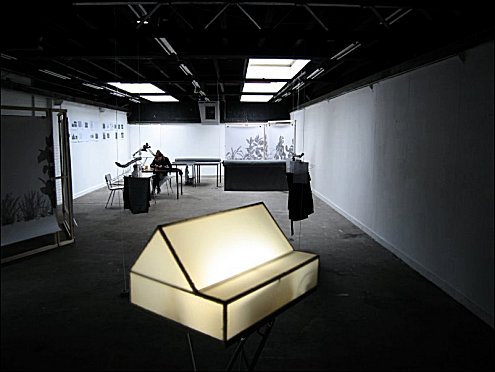
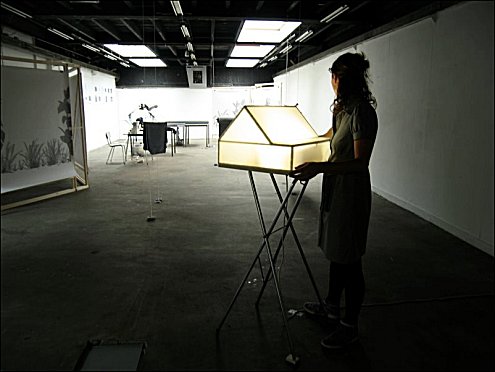
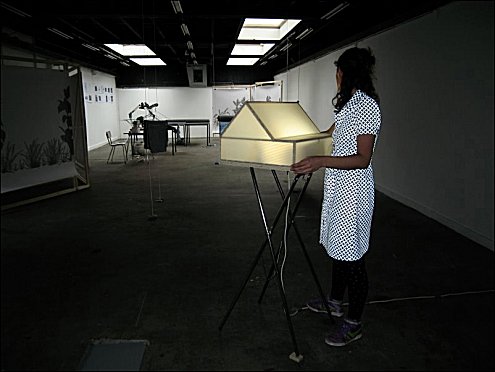
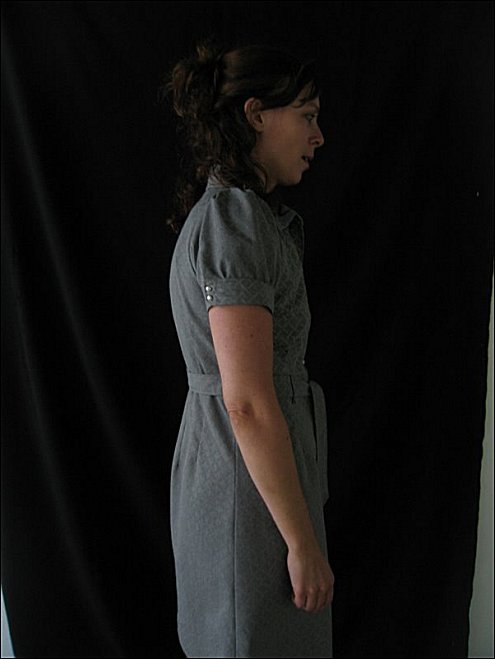
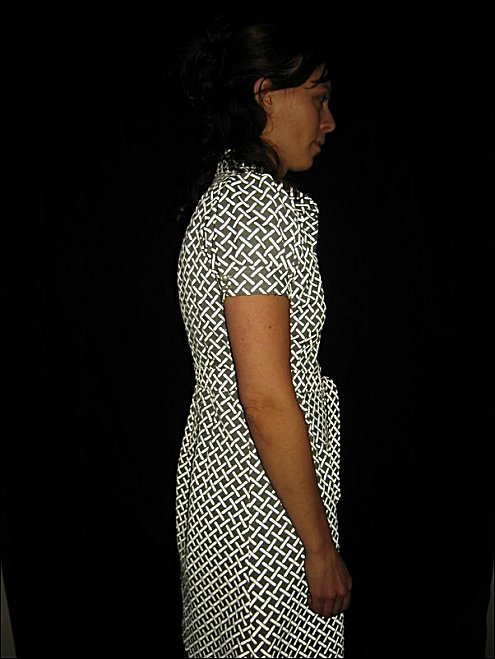
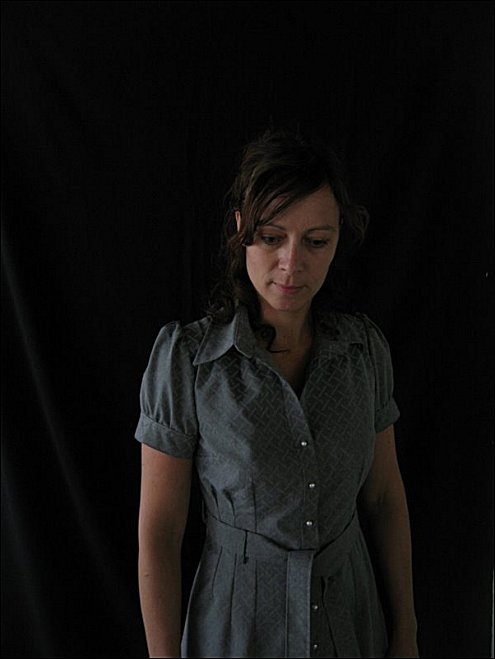
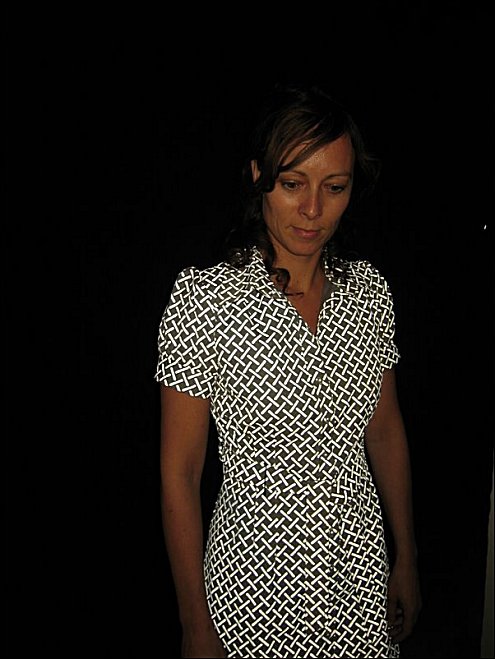
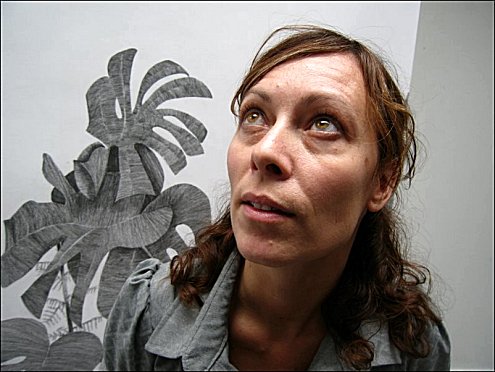
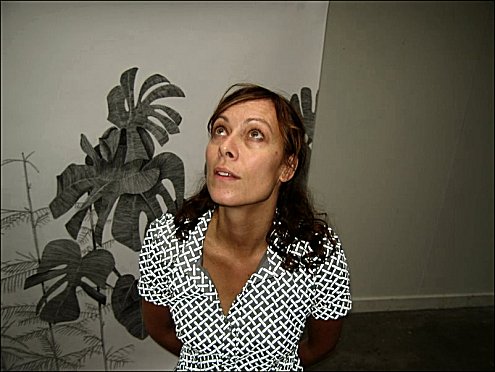
M a r i ë l l e V i d e l e r
T I N D E R T O U C H
Mariëlle Videler about her work:
Situations: models for life
The perishablility I prefer, that’s why in the course of years I concentrated myself more and more on temporary works and life art. I create situations, temporary actions in a given, chosen or created space in which rituals, cultivated or instinctive behaviour, and the active participation of others plays an important role.
In my work I try to unite intuition and concept. I collect images, text and experiences out of life, culture, social systems and art history. These form an archive that I use partly direct and conscious to create a work, while other works are started in a more intuitive way. While spontaneous working, drawing for example, I see connections with a more conceptual framework. This can help me to make certain decisions for material, shape or colour and I can decide to implement a motif from my archive that is connected to the concept. The participants in my work can be divided in two groups. People that I invite to participate in the actions, to co-create a work and people who at a later stage get involved in or view the situation. I use codes and biological / cultural manners to approach people and on an intuitive level activate and involve / engage them in the work. Therefore I research conceptual structures like a game or a sport, more intuitive social structures as riding with a boom-car through the streets and systems within different cultures for example the Turkish seasonal fest Hidrellez. I search for connections between my intuition and concepts.
Art is my way of creating models for life: situations. By making special surroundings, situations, I try to intensify the moment of contact between people. I obsessively compose the situation for the other to direct.
M o r e o n w e b s i t e M a r i ë l l e V i d e l e r
.jpg)
Joep Eijkens Photos: Mariëlle Videler & Tinder Touch
fleursdumal.nl magazine – magazine for art & literature
© J. Eijkens 2007 (eerder gepubliceerd op www.cubra.nl)
More in: FDM Art Gallery, Joep Eijkens Photos
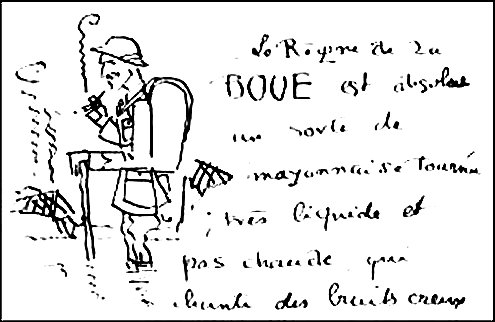
J a c q u e s V a c h é
L E T T R E S D E G U E R R E

Cher Ami,
…Je vous écris d’un ex-village, d’une très étroite étable-à-cochon tendue de couvertures — Je suis avec les soldats anglais — Ils ont avancé sur le parti ennemi beaucoup par ici — C’est très bruyant — Voilà.
…Et puis vous me demandez une définition de l’umour — comme cela ! —
« IL EST DANS L’ESSENCE DES SYMBOLES D’ÊTRE SYMBOLIQUES » m’a longtemps semblé digne d’être cela comme étant capable de contenir une foule de choses vivantes: EXEMPLE: vous savez l’horrible vie du réveillematin — c’est un monstre qui m’a toujours épouvanté à cause que le nombre de choses que ses yeux projettent, et la manière dont cet honnête me fixe lorsque je pénètre dans une chambre — pourquoi donc a-t-il tant d’umour, pourquoi donc? — Mais voilà: c’est ainsi et non autrement — Il y a beaucoup de formidable UBIQUE aussi dans l’umour — comme vous verrez — Mais ceci n’est naturellement — définitif et l’umour dérive trop d’une sensation pour ne pas être très difficilement exprimable — Je crois que c’est une sensation — J’allais presque dire un SENS — aussi — de l’inutilité théâtrale (et sans joie) de tout.
Quand on sait.
Et c’est pourquoi alors les enthousiasmes (d’abord c’est bruyant), des autres sont haïssables — car — n’est-ce pas — nous avons le génie — puisque nous savons l’UMOUR — Et tout — vous n’en aviez d’ailleurs jamais douté? nous est permis. Tout ça est bien ennuyeux, d’ailleurs.
Je joins un bonhomme — et ceci pourrait s’appeler OBSESSION — ou bien — BATAILLE DE LA SOMME ET DU RESTE — oui.
Il m’a suivi longtemps, et m’a contemplé d’innommables fois dans des trous innombrables — Je crois qu’il essaie de me mystifier un peu — J’ai beaucoup d’affection pour lui, entre autres choses.
Jacques Vaché 29 avril 1917
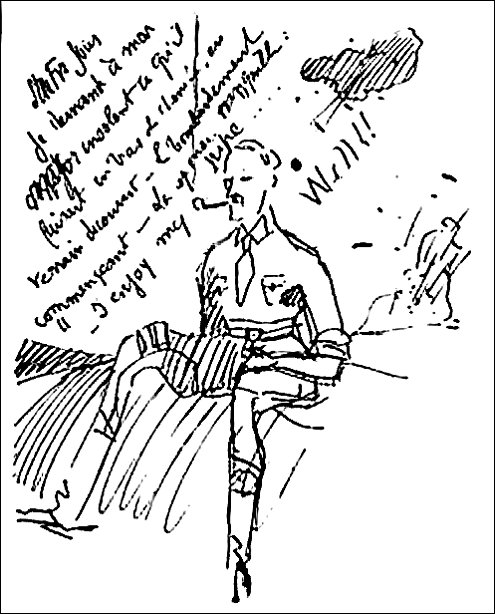
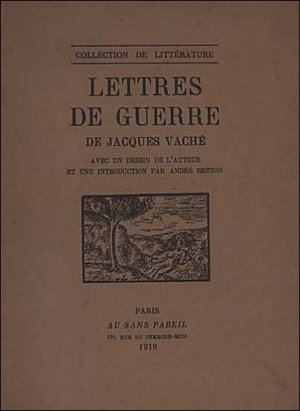


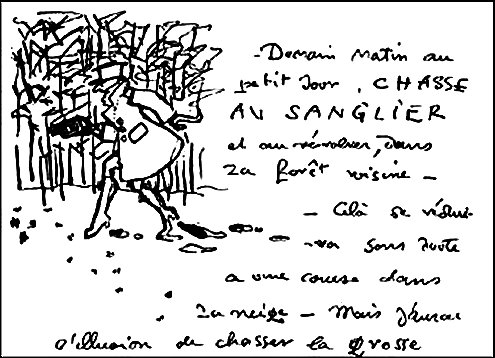

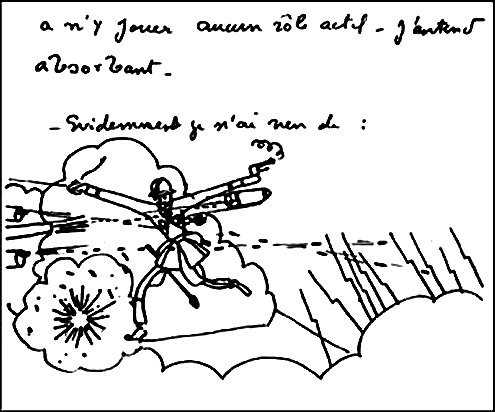
.jpg)
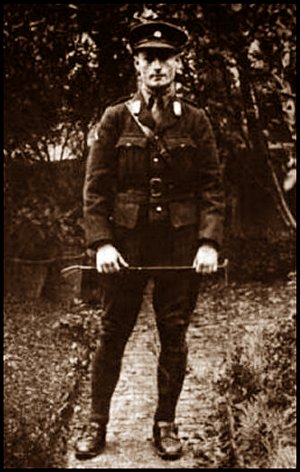
Jacques Vaché (1895-1919)
Lettres de Guerre
partie 1
fleursdumal.nl magazine
More in: *Concrete + Visual Poetry U-Z, Jacques Vaché, Vaché, Jacques, Visual & Concrete Poetry, WAR POETRY
Thank you for reading Fleurs du Mal - magazine for art & literature